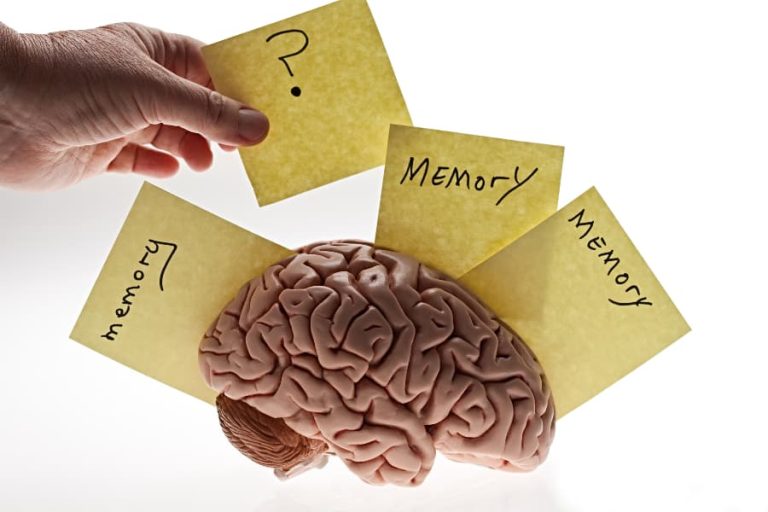Memory loss and forgetfulness can be caused by various factors, including genetics, aging, and other cognitive conditions. Fox Trail Memory Care Living considers the factors behind memory loss and helps our residents cope with change and medical care. We also provide comprehensive services such as 24/7 medical assistance and help with the transition between home and memory care. Learn more about what causes memory loss and forgetfulness.
Factors Influencing Forgetfulness and Memory Loss
There are many different causes that can contribute to memory loss and forgetfulness. Although aging can be a common reason for minor forgetful moments, consistent or chronic memory loss can be due to:
Genetics
Diseases like Dementia and Alzheimer’s disease are often the result of genetics. If a person has a family history of cognitive impairments, they are more likely to develop one themselves. Mutations in the APOE gene are a major risk factor for later-onset Dementia and memory loss. If the gene is mutated, the person can experience memory loss and forgetfulness.
Neurological and Memory Conditions
Other causes of memory loss and forgetfulness include neurological and cognitive conditions. These include:
- Several types of Dementia, including frontotemporal, Lewy body, mixed, and vascular dementia
- Alzheimer’s disease
- Parkinson’s disease
Neurological and memory conditions can cause memory loss and forgetfulness because of nerve problems and pain. Alzheimer’s disease leads to the buildup of abnormal proteins in the brain that damages the areas responsible for memory. Dementia also causes declining activity within the memory centers of the brain. Parkinson’s disease can also result in memory problems and forgetfulness.
The differences between normal aging and Dementia are often difficult to tell apart. Normal age-related memory loss is typically categorized by occasional forgetfulness, which doesn’t majorly impact daily life. Meanwhile, Dementia involves a more severe and gradual decline in cognitive function that affects everyday activities. Dementia can lead to poor judgements and decisions, problems taking care of monthly bills, losing track of the date or time of year, trouble having a conversation, and misplacing things often and being unable to find them.
Lifestyle Factors
Lifestyle factors such as stress, anxiety, depression, and trauma can influence memory loss and forgetfulness. Trauma often leads to lapses of memory, especially after hard events and long periods of time of high stress and anxiety. Even panic attacks can lead to moments being forgotten. Other lifestyle factors include frequent alcohol and drug intake. Sleep problems or lack of sleep can also cause people to forget small details.
Other Medical Conditions
Other medical conditions such as a stroke, brain tumor, and multiple sclerosis (MS) can lead to forgetfulness and memory loss. Strokes and brain injuries can disrupt blood flow to the brain and lead to memory loss and cognitive impairments, while brain tumors and their treatments may damage brain tissue and impact memory. MS can affect the brain and spinal cord, which may result in neurological issues like forgetfulness. Some medications for other conditions can also have side effects of memory problems.
Keeping the Brain Active
While losing some neurons during the aging process is normal, the loss can be greater for those with Dementia and that are experiencing long-term memory loss. Keeping the brain active during the day is an essential step in keeping the memory part of the mind engaged. Engagement in social activities helps maintain chemicals in the brain and combat memory loss.
Managing changes to your memory can be combined with maintaining a daily routine, utilizing notes to keep track of important dates, and keeping items in the same places. Living a healthy lifestyle and other factors can improve memory health. These include:
- Performing regular exercise
- Creating and sticking to a routine
- Getting eight hours of sleep at night and going to bed on time
- Managing your blood pressure
Other ways to stay mentally active include playing cards, pursuing hobbies, doing puzzles and brainteasers, reading, and learning another language. These activities offer a fun way to mentally engage the mind and work memory processes that may be lost over time.
Learn More About What Causes Memory Loss and Forgetfulness
Memory care is beneficial for individuals who are dealing with consistent memory loss and forgetfulness. The comprehensive memory care services at Fox Trail Memory Care Living help residents in North and Central NJ adapt to life with memory impairments. Our unique living arrangements offer fully furnished apartments and in an intimate home setting. We also provide excellent amenities to keep your loved ones mentally active and healthy, including:
- Walking paths and exercise opportunities
- Home-cooked meals
- Medication management and holistic health practices via our HOPE Program
- Wellness and engagement programming through our SPARK! Program
To learn more about what causes memory loss and forgetfulness, contact us for more information or schedule a tour today.

